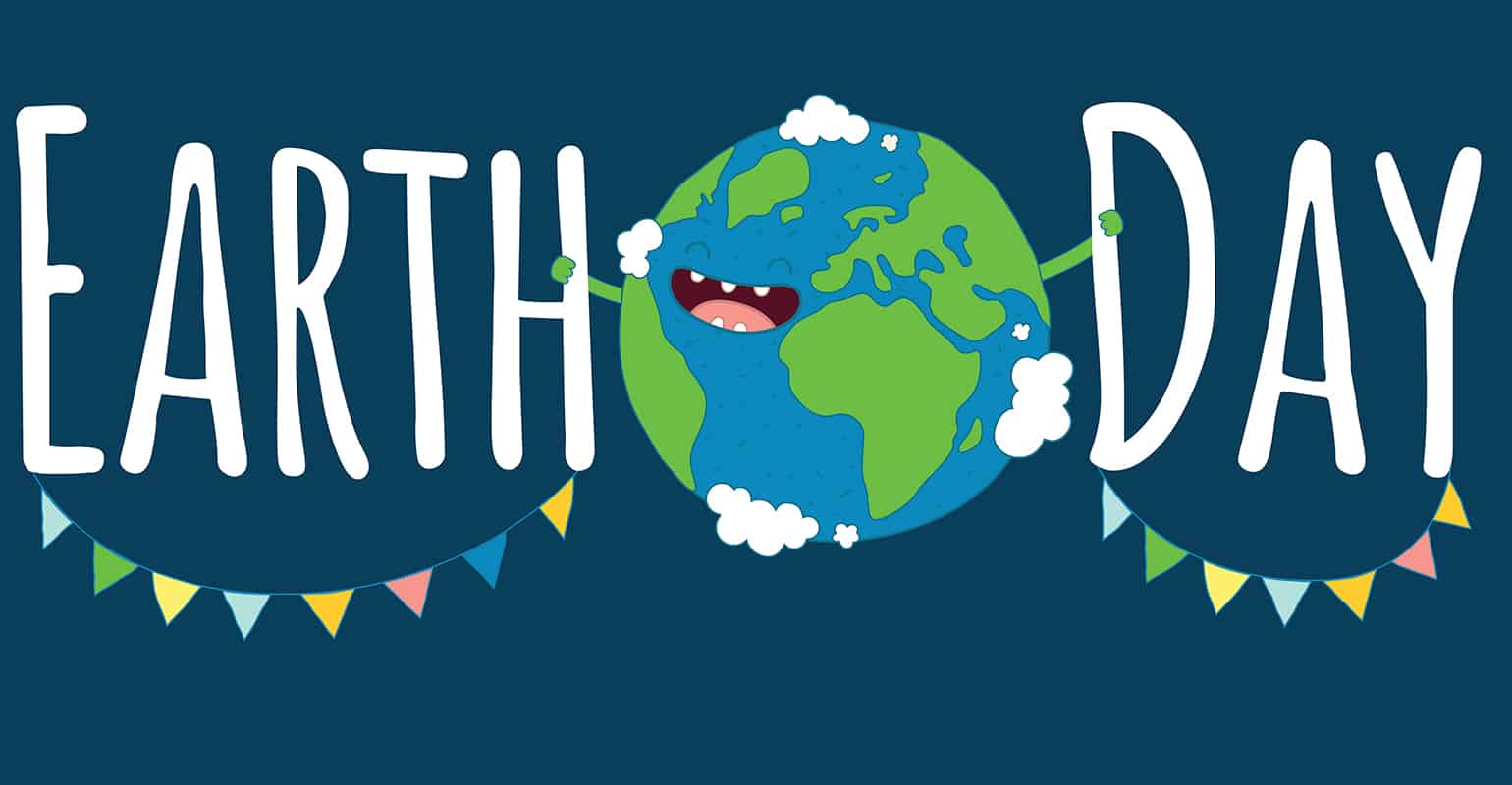
4/2/2018
First celebrated 48 years ago, Earth Day is an annual event held on April 22.
"On April 22,1970, 20 million Americans took to the streets, parks, and auditoriums to demonstrate for a healthy, sustainable environment in massive coast-to-coast rallies. Thousands of colleges and universities organized protests against the deterioration of the environment. Groups that had been fighting against oil spills, polluting factories and power plants, raw sewage, toxic dumps, pesticides, freeways, the loss of wilderness, and the extinction of wildlife suddenly realized they shared common values." (The History of Earth Day)
This post is not political...it has to do with creating a better Earth and climate for years to come. If you don't take the status of the environment serious, how can you live?
I know I create waste and use plenty of unnecessary energy, but I took time to reflect on some of the easy day-to-day tasks I do, some I could improve on, and some I would like to try to help the environment. I have 30 tips for you to try to focus on this month to improve your environmental conscience and celebrate Earth Day.
In the house
- When you wake up in the morning and brush your teeth do you leave the water running? Wet your toothbrush then turn off the water, apply the toothpaste and brush your teeth, or apply the toothpaste, wet the brush and begin brushing...either way, just keep the water off when you are brushing.
- Fully charged devices? Unplug them! There are no benefits associated with wasted energy, a hot charger, and an overcharged device.
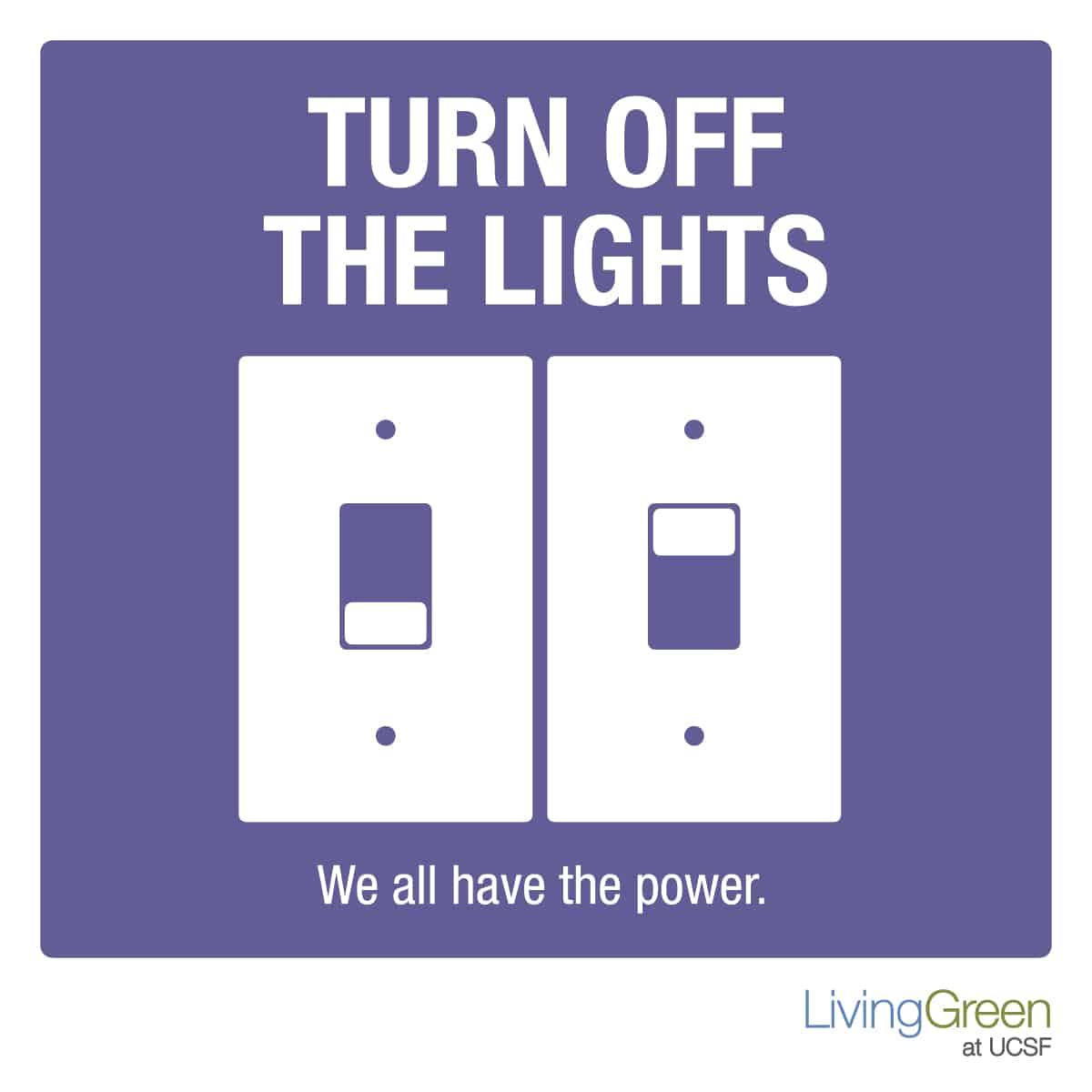
- This seems pretty elementary...but, I'll say it anyway. Turn off the light when you leave a room.
- Notice your sink leaking? Fix it or get it fixed immediately so you aren't wasting water nor paying for water use.
- Open your curtains, twist the blinds, and let natural sunlight in to brighten up the room instead of turning on a light.
- Save water in the shower & bath! Of course you can treat yourself every once in a while with a bath, but the average bath uses 35 to 50 gallons of water, whereas a 10-minute shower with a low-flow showerhead only uses 25 gallons.
- Take care of yourself with sustainable and/or natural personal care products! Take the extra step to buy quality products and look for alternatives- keeping in mind less packaging, less waste, less chemicals!
- Stop buying bottled water! Invest in a water filter for your sink, on your refrigerator, or a refillable water pitcher with a filter. It really makes no sense to have to go to the store to get water...
- Don't run a fan for an empty room. Ceiling fans move air, but they don't cool down a room. It is a cooling effect on us because of the movement of the air on our skin.
- Pretty spring days making you want to open the windows? It's the perfect time for opening up the windows letting the fresh air in- until the higher temperatures start coming and it's time for air conditioning.
- If you do have to run your air (or heat), they say the average temperature is 78 degrees in the summer, and 68 degrees in the winter. Set the temperature to whatever makes you comfortable, and if you begin to get too cold/hot, increase or decrease the set temperature by plus or minus two degrees, so the breaker doesn't have to work hard to get the temperature back to where you want. If you turn it completely off, it takes more energy to get the temperature back once it's increased to decreased by a significant number of degrees.
- Seal drafty windows and doors. The air/heat you are running is escaping! Making your unit work harder to keep your home temperature where you want it.
- Reduce energy consumption with smart power strips! Smart power strips save energy by turning off outlets that aren't in use while allowing you to keep your devices plugged in. Get one (or a few) for an easy, low-cost way to manage home electronics, reduce vampire power loss & save money.
- Have some old towels you don't want to use anymore? Cut them up to use as cleaning rags, wash rags, car wash rags, even napkins.
- Don't take the easy way out and use paper products, use regular dishware and wash them to reuse. Paper and styrofoam plates are only good for one use, then thrown away. #wasteful
- Learn about your local recycling program on Earth 911. Some places do curbside pickup in a separate bin, some places allow you to put everything together for other people to sort, and some places you have to drop it off at the local recycling center. Figure out what materials you can recycle then begin recycling at your convenience. Paper, plastic, and cardboard are very common everyday materials you use at home. Start collecting them to recycle!
Outside the house
- We need bees! There is growing concern at bee decline across the world caused by loss of habitat and food sources, exposure to pesticides, effects of climate change and more. We need to recognize the importance of bees to nature and to our lives and turn our knowledge into action. Plant one of these to help save the bees!
- Grow your own! What is something you buy in the store and use a lot of? Tomatoes? Peppers? Grapes? Peaches? Basil? Mint? Look up what you can grow in your area and start your own garden! You’ll save money at the store, and feel incredibly proud of the things you can grow.
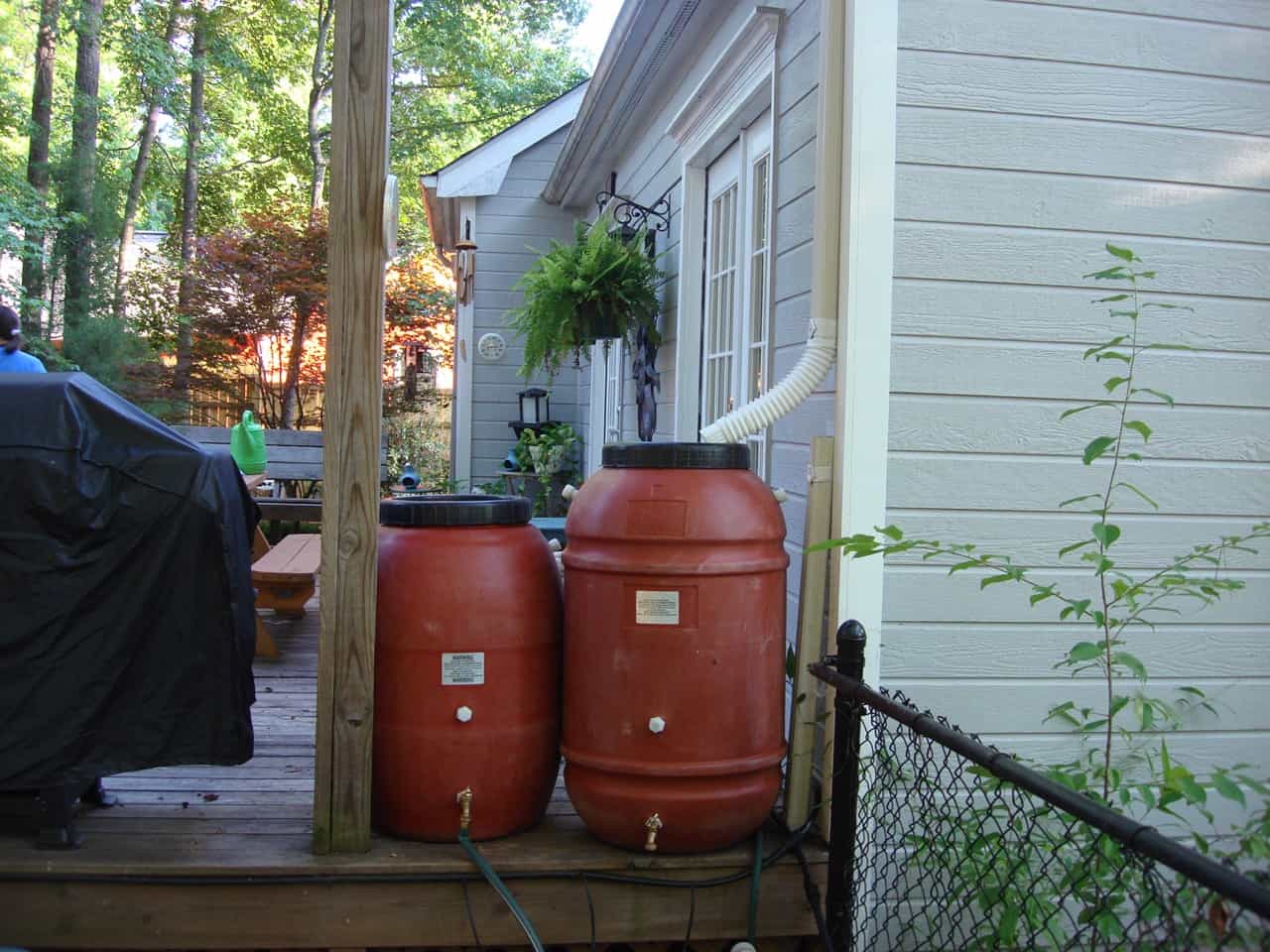
Small scale rain barrels with spigots.
- We pay for water, meanwhile it’s falling from the sky. Try collecting rainwater. You can do so on a large scale, or small scale. Use the water to wet your garden or grass, wash your car, flushing toilets and more.
- “Spring has officially begun and the world around us has brightened up and come to life. If you are looking to liven up your yard, it is easy to attract songbirds and wild birds.” (Attracting Songbirds and Wildbirds to your feeders)
Plus there are several Benefits of Backyard Birds
- If I am in my home, in the office, out to eat, or at a meeting… I don’t want to hear you blowing leaves for hours. It’s super annoying, a substantial waste of your time and energy, and a huge producer of emissions. I love this article Why You’re the Worst Person In the World If You Use a Leaf Blower
Out and about
- Think about ride-sharing with friends who are going to the same place! Take turns carpooling the kids to school or sports, share rides with co-workers, friends that work close by, neighbors that need to go to the store, or someone who wants to go shopping when you do. Cut back on emissions and have fun with friends or family during the car ride.
- Grab a reusable water bottle, or thermos cup to take a drink with you for the trip, or for wherever you're going. If you’re going to be out for a while you need to stay hydrated. Bringing your own drink saves money and prevents you from drinking from a plastic bottle or aluminum can. You can even take an empty bottle/cup to the airport and fill with water for the plane. Take advantage!
- Speaking of reusable…keep a few reusable bags in your car for when you go grocery shopping. Stop taking home a bunch of plastic bags that only hold a few items, and are basically useless. Just use a few sturdy bags that hold more and make carrying groceries easier. If you do find yourself with a collection of plastic bags, there are places where you can recycle them. In California, if you want plastic bags at Wal Mart they are ten cents each. Think about that next time you come home and have to take three trips to the car to get your 20 plastic bags.
- Always eating on the go? If you eat takeout at work, take your own silverware to reuse each day instead of getting plastic ware every time you get food. If you are grabbing to-go food on the way home, tell them to skip out on the plastic ware, you have silverware at home! Reduce & reuse people!
- Same goes for coffee cups at work. If you know you drink coffee or tea most days, take your own mug, or thermos to store your coffee all day instead of throwing away one (or more) paper cups per day.
- Shop local! When you shop at locally owned, independent businesses more money is kept in the community. Local businesses often purchase from other local businesses, service providers, and farms. It requires less transportation overall, and stores are generally set up shop in existing buildings in town or city centers.
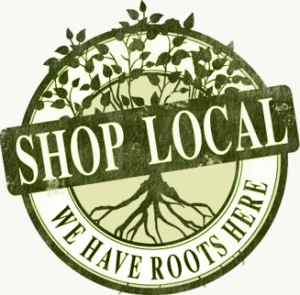 When it comes to fruits and veggies, hit up the local farmers market! You know you are getting locally sourced, fresh produce for a reasonable price, and the money going back into pocket is used to grow more produce, and support a family.
When it comes to fruits and veggies, hit up the local farmers market! You know you are getting locally sourced, fresh produce for a reasonable price, and the money going back into pocket is used to grow more produce, and support a family.- Donate to local nonprofit groups. You can find organizations to donate clothes, toiletries, food, personal care products, and other items you have just sitting around your house. It’s really nice to do a big spring cleaning and get rid of the things you don’t want/use. It’s even better to know your items are going to someone who needs them!
- Tell someone about an existing sustainable practice you use, or a new one you are interested in trying. I just gave you 29 little ideas that can make a big difference. These tips not only help the environment, but more times than none, they save you money and personal energy...and make you feel better!
What do you do to live sustainably?

3/9/2016
With over 77,000 rivers and streams and an average rainfall of 55 inches per year, Alabama is a state blessed with natural water resources. Catching and reusing water is an ancient technology that has current value to save energy, money and conserve an important natural resource.
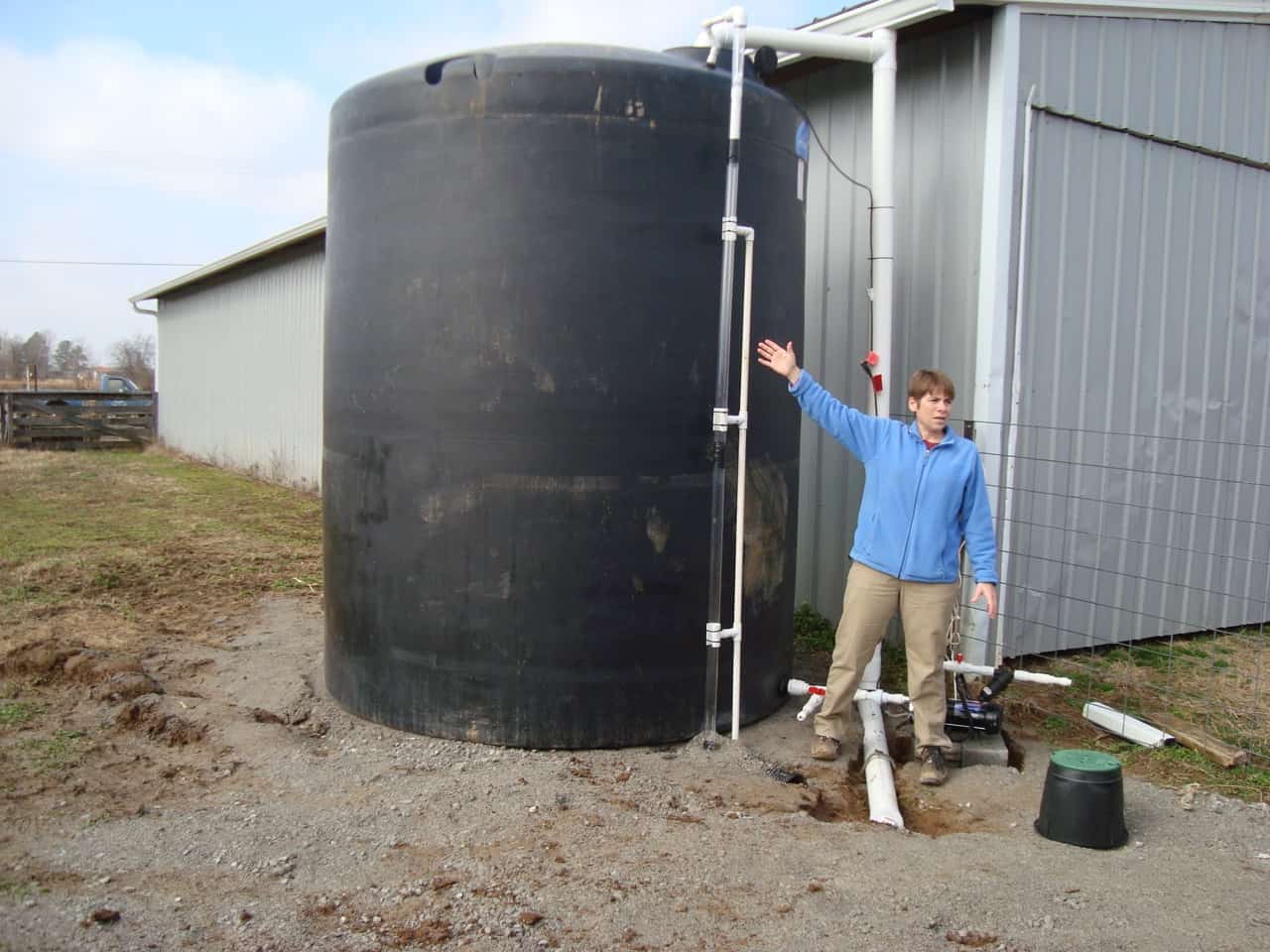
A large rain barrel, for farm use.
If interested in collecting rainwater, first you must decide if you want to collect on a small or large scale. For personal collection, you can use something as simple as a rain barrel. Wood, metal, or plastic are all good containers for rainwater collection, as long as they do not have residues of harmful chemicals. It is wise to use a dark container, or paint the container dark to discourage algae growth. The container used for collecting should be covered, with a screen protection at the opening to keep mosquitos out and minimize leaves or other materials from entering. For larger scale collection, cistern systems are recommended. In 2010, Birmingham-Southern College installed a 15,000 gallon cistern that captures rainwater off of the roof and uses it for landscape irrigation. According to bsc.edu this practice is saving 50,000 gallons of water per year.
The Alabama Cooperative Extension System hosts residential rain barrel workshops each year to demonstrate construction, placement and uses of rainwater harvesting systems. Harvested rainwater can be used for household chores like watering lawns/gardens, irrigation in the yard, flushing toilets, and washing cars. Be sure to check with local plumbing codes and ordinances if you are interested in using rainwater inside your home.

Small scale rain barrels.
Collecting rainwater saves money and energy. The collector will save money by using the free resource instead of treated water. “Why not take advantage of what’s free and falling from the sky,” said Alabama Extension specialist Dr. Eve Brantley. “Collect it and hold it until you need to use it rather than constantly using water that has been treated. It saves energy, it saves money, and it’s a good use of water resources,” she said. Although Alabama has plentiful water resources droughts occur about every 12 years. It is smart to practices water collection and conservation so it becomes a habit. It is anticipated that climate variability will result in more frequent and/or more extreme droughts. It is smart to practice water collection and conservation so it becomes a habit.Don’t hesitate to start collecting rainwater now.
You can read into how to collect rainwater at aces.edu or contact your local Alabama Cooperative Extension agent. If you are a homeowner interested in an attractive, low-maintenance, and sustainable home landscape check out the Alabama Smart Yards app on your mobile phone.
Article published on Extension Daily at http://news.aces.edu/blog/2016/05/09/benefits-of-collecting-rainwater/





 When it comes to fruits and veggies, hit up the local farmers market! You know you are getting locally sourced, fresh produce for a reasonable price, and the money going back into pocket is used to grow more produce, and support a family.
When it comes to fruits and veggies, hit up the local farmers market! You know you are getting locally sourced, fresh produce for a reasonable price, and the money going back into pocket is used to grow more produce, and support a family.

